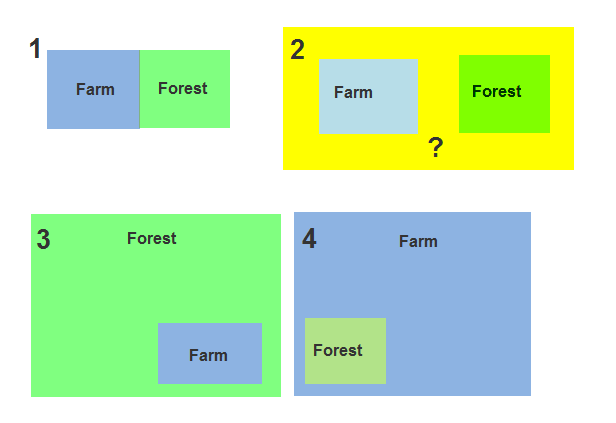I am thinking about trying to figure out how to conduct research “properly” in the regions beyond the boundary of post-positivism.
Think of a farm that now borders the deep dark woods.
In the beginning we have a farm, surrounded by other farms, and over time, we haved figured out through trial and error, what works, even considering how variable the weather may be. The trial and error has been so successful that we have codified it into formal science and our success grew by leaps and bounds.
our farm now has expanded and on the border we encounter a deep, dark forest, whose boundaries we cannot see, only glimpse, and in whose depths we can see only shadows.
The farmland is the land where positivism and post-positivism excel. We are able to reduce and analyze problems and rely on the rules of cause and effect and the power of math to find answers and produce reliable solutions. It’s a land wherein all things are knowable.
In the forest, however, things change so much that our old rules don’t seem to apply. Things change faster there, unpredicatably, sometimes as if by chance, and at other times by rules that only sometimes seem to make sense, and the ruules seem to change as soon as we write them down. There are plenty of things we don’t yet understand. There seem to be things that are essentially unknowable. This is the land of complexity and chaos, where new rules sets are tentative and unproven. William Poundstone has written powerfully about these kinds of paradoxes in his book Labyrinths of Reason. The Sante Fe Institute in New Mexico researches this area in a scholarly manner.
It turns out that the epistemology of the farmland breaks down in the land of the forest. At the same time, the emerging rulesets of the forest don’t perform as well when you bring them into the farmland, because they are too tentative and uncertain, and in the farmland efficiency and certainty can be achieved and are rewarded.
People who would explore the forest know a lot less about that region than the people who explore the farmland know about the farms, and sometimes they talk past each other because they are coming from 2 different epistemologies, which in turn can create a disconnect at the ontological level itself (ie the nature of the world).
My sense is that in the “forest” of complexity, chaos and uncertainty, that mixed methods are going to be absolutely essential when it comes to developing an understanding of how to stay alive and thrive out there.
As we grow in knowledge we are able to push the boundaries of the farm out into the forest. everything that is coming out of the study of the science of complexity and uncertainty and chaos, however, suggests that there is some vast amount of forest that must remain out there beyond our ability to “domesticate” with the power of post-positivism.
This doesn’t disrespect post-positivism and all the good that it can do, it only says that the world is stranger than we CAN imagine so far, and that in the forest a different world view is useful.
The Sante Fe folks have a combination of pragmatism and constructionism threaded throughout their work, while at the same time having a deep and abiding respect for science and scientific method, as evidenced by the Nobel laureates they have on staff

what's your judgement on the state of the farm vs forest discussion? i pick #2
